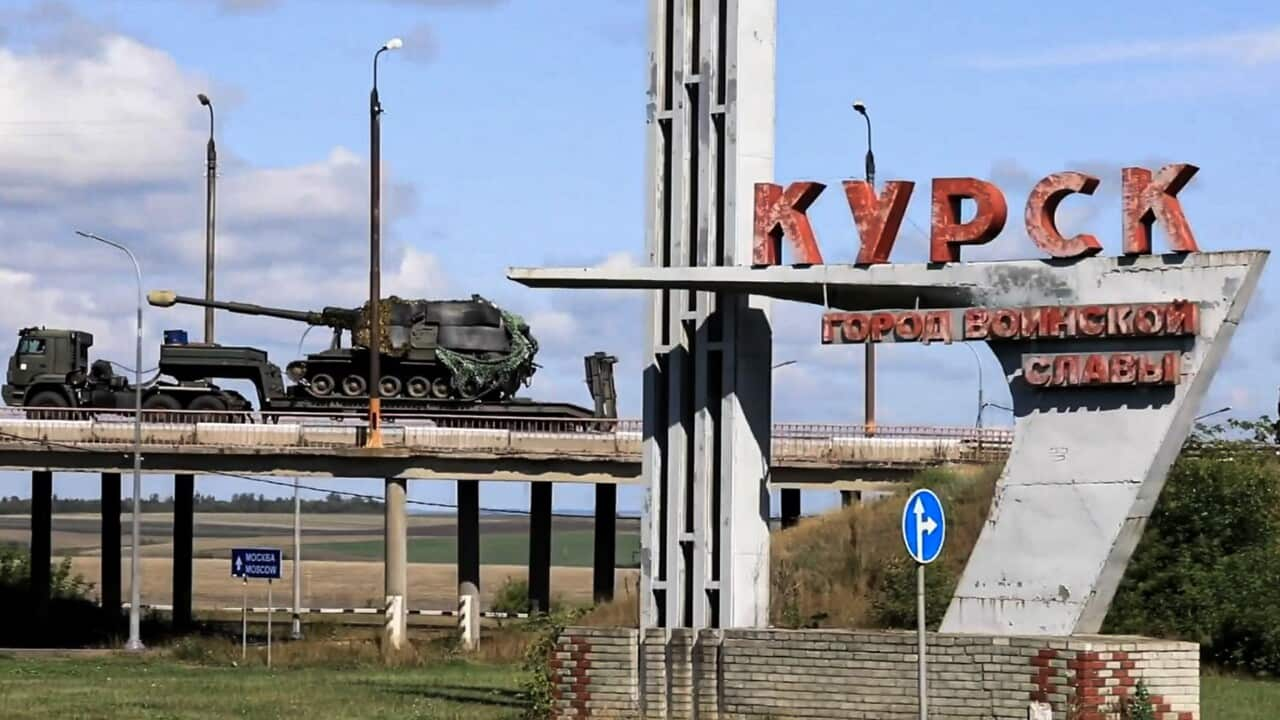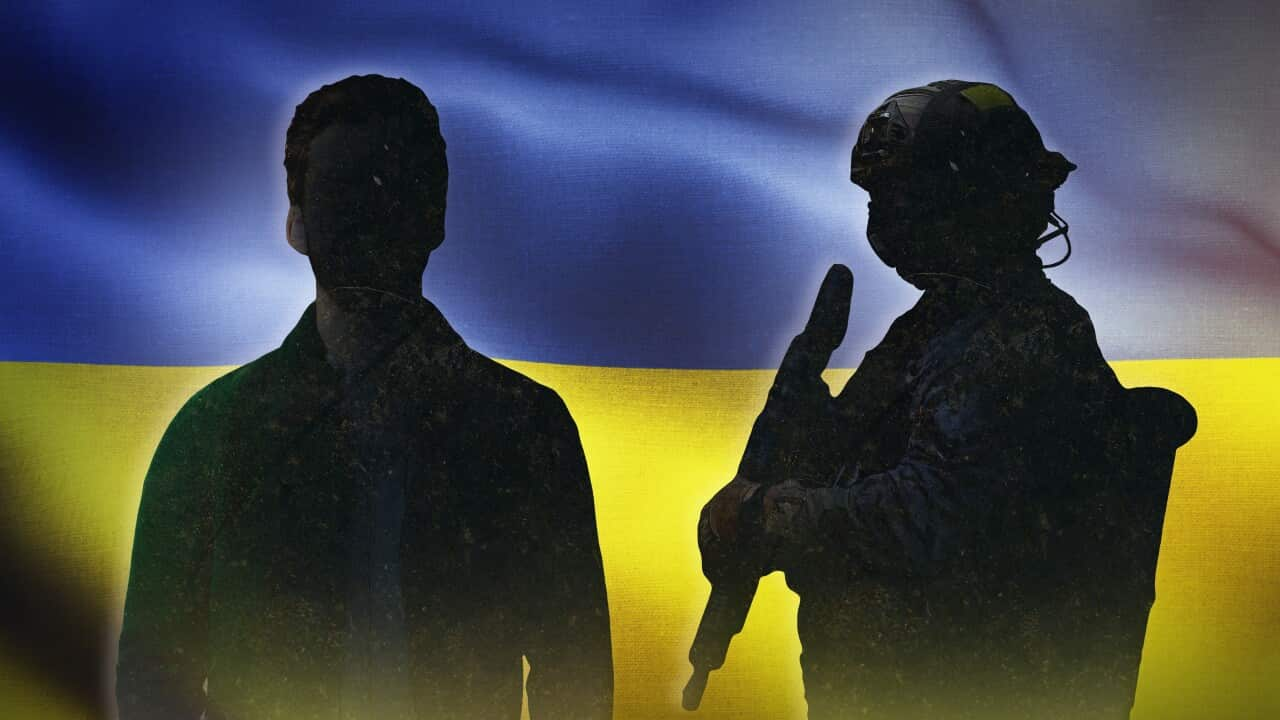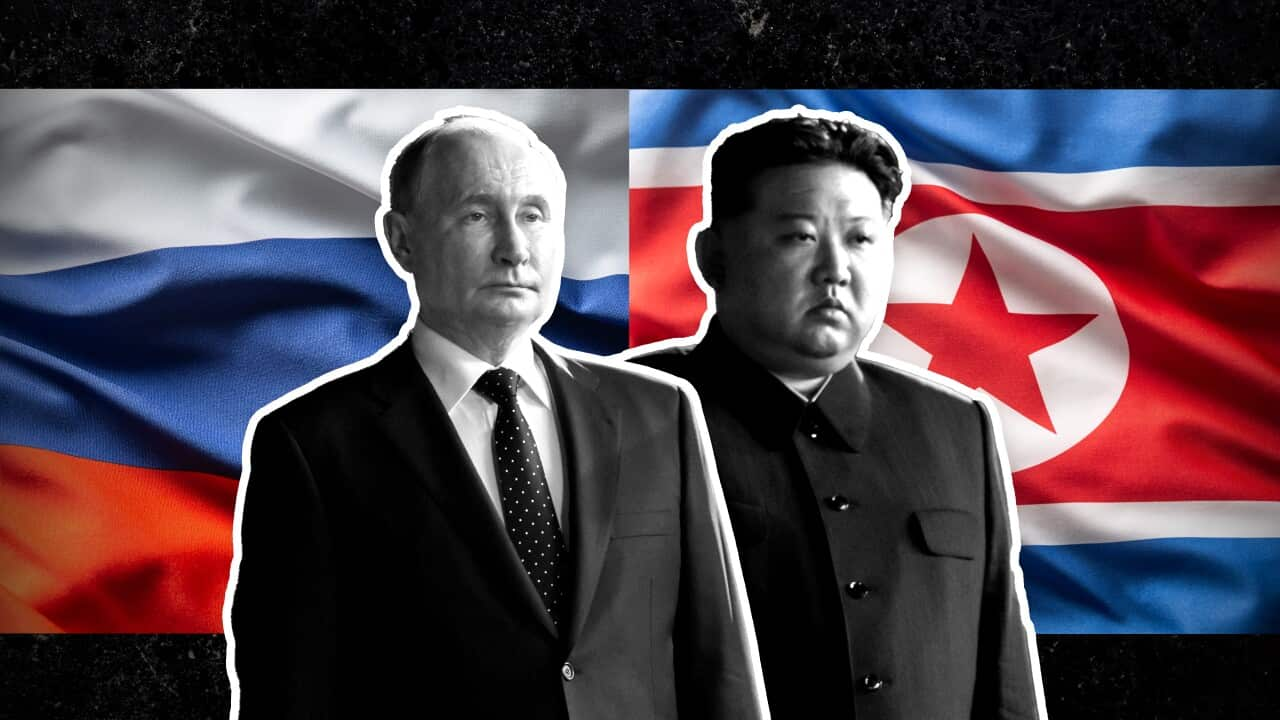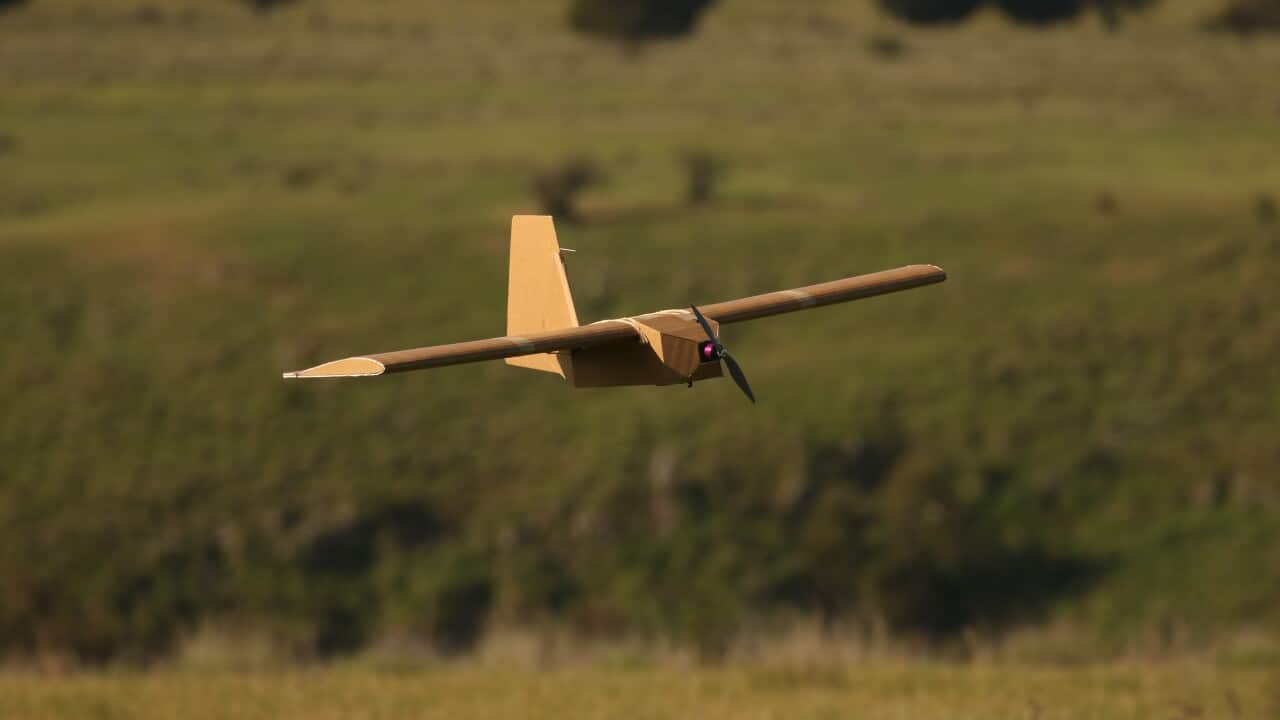Russia is gathering thousands of troops and evacuating citizens as it attempts to respond to what experts have called a major Ukrainian advance into Russia's Kursk region.
Ukrainian troops launched a surprise offensive into Russia's western Kursk region on Tuesday, in the most significant attack across the border since Moscow invaded in February 2022, with analysts estimating Ukrainian troops have penetrated nearly 40 kilometres into Russian territory.
Russia's Defence Ministry said it was sending rocket launchers, artillery, tanks and heavy trucks to bolster its defences in the region, state media reported.
The attack marks a new direction for the conflict, which has largely been a war of attrition in the last 12 months, visiting fellow at Griffith University Peter Layton told SBS News.
"Ukrainian forces look to have been secretly taking troops away from other parts of the front line and preparing them for this for months.
"There's certainly a psychological boost there, the Ukrainians are advancing, and it sort of changes the perception of external players about what the Ukrainians are capable of."
Here's what happened and why it's significant.
How did Ukraine's incursion unfold?
About 8.00am on Tuesday, Ukrainian forces launched an assault into Russia's southwestern Kursk region, according to the Russian army.
Russia accused Ukrainian forces of indiscriminately attacking civilian buildings and rushed reinforcements, air and artillery firepower to repel the attack. A state of emergency has been declared in the region.
Around 1,000 Ukrainian troops and more than two dozen armoured vehicles and tanks were involved in the initial attack, said Moscow, though it later claimed to have destroyed many more pieces of equipment.
While Ukraine has not officially confirmed the offensive, President Volodymyr Zelenskyy said Thursday that Russia needed to "feel" the consequences of its invasion.
"Ukrainian forces are reportedly present in areas as far as 35 kilometres from the international border," said the independent US-based Institute for the Study of War (ISW) in its daily assessment drawing on geolocated videos and photos.
But those troops "most certainly do not control" that entire area, it added.
Russian President Vladimir Putin has called the incursion a "large-scale provocation" and Russia's top general has vowed to crush it.
Why is Ukraine's attack significant?
Layton said the Ukrainians had "put a fair bit of effort" into the incursion and it was "not a small picnic outing."
"The Ukrainians shot down Russia's drones and then jammed all the backup drones, so they blinded the Russian surveillance system and then moved the Ukrainian armoured vehicles forward.
"And they must have some air defence systems as well, because they shot down a Russian helicopter also. And it's a fair-sized incursion with a couple of brigades with a reasonable number of armoured vehicles."
Ukraine is now on the front foot, having caught its opponents by surprise, which is not easy to do in a highly-surveilled war, he said.

Ukraine has launched its biggest incursion into Russian territory since the war began in 2022. Source: AAP / Anatoliy Zhdanov / Kommersant
In mid-March, during the Russian elections, , officials had said.
Ukraine's allies seemed surprised by the assault and the United States says it has reached out to Kyiv for information.
Ukrainian military expert Sergiy Zgurets, who runs his own consultancy, told Agence France Presse that "the photos of the destruction of Russian and Ukrainian equipment, helicopters, the use of aviation, the use of artillery on both sides" indicated a significant military operation.
The Ukrainians had forced the Russians into responding and likely diverting resources away from other regions, said Mick Ryan, a military strategist and retired Australian army major general.
"The Ukrainians have attacked with a highly mobile, mechanised force. This is different to the Russian .
"A high level of mobility is essential to creating or exploiting gaps in enemy defence, and rapidly exploiting such gaps."
What is Ukraine hoping to achieve?
It's unclear how long the attack will last and how much farther troops will progress.
"For now, this is a limited operation, whose direct consequence will be to reduce the stability of the Russian group attacking/hovering over Kharkiv," Ukrainian military analyst Oleksiy Kopytko said on social media.
"Judging by the scale and intensity of the Ukrainian operation, sooner or later, the enemy will be forced to pull troops from other operational areas," Ukrainian military observer Kostiantyn Mashovets said on Facebook.
The assault could also have a psychological effect — boosting the morale of Ukrainians who have seen their troops suffer a string of setbacks while trying to destabilise Russia.
"Another goal is to show Russian society what it feels like when your territory is occupied," Sergiy Solodkyy, deputy director at Kyiv's New Europe Centre think tank, told Agence France Presse.
What could happen next?
Ryan said Ukrainian planners would be trying to exploit the fact Russia "can't be the offensive forever".
They could be trying "to force the Russians to reconsider their force dispositions elsewhere on the front line", he said.
Layton said Ukraine was possibly seeking to gain a position from which it would propose a ceasefire and that it would potentially offer this captured region in exchange for ceding some of its own territory.
He said the incursion was completely surprising and therefore it was hard to predict how it would pan out.
"The Ukrainians might dig in and decide that they'll keep this captured territory and they'll move more of their artillery forces north, to try and retake captured territory.
"They'll try and if you kill as many Russians and their vehicles as possible while they're moving to respond to this particular attack — and then keeping the territory would have a strategic impact."













